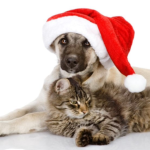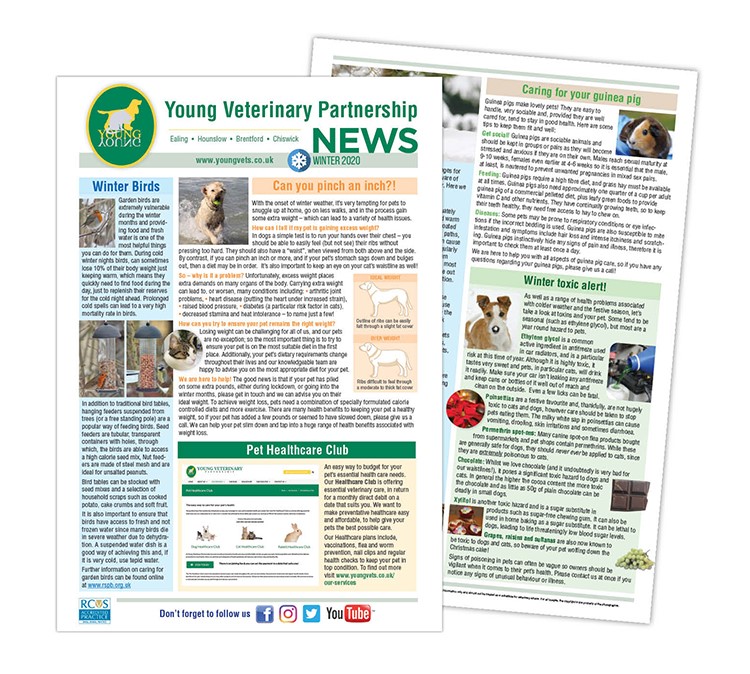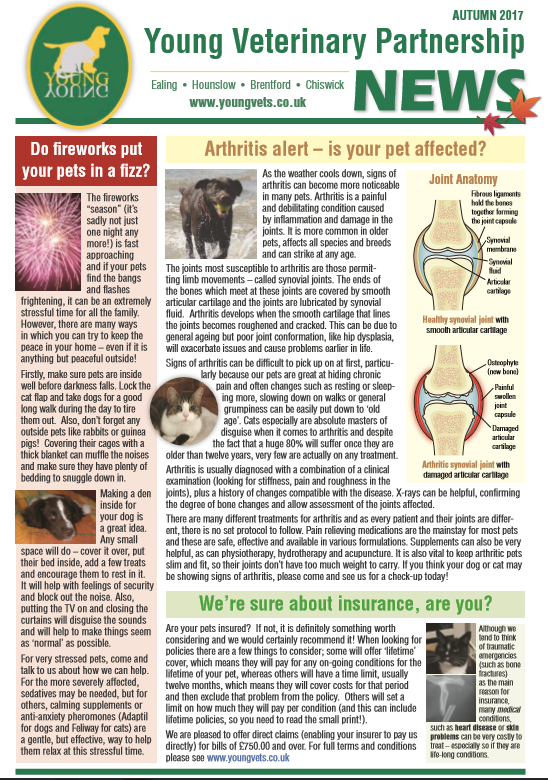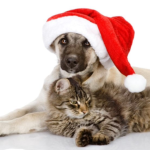Pet Paws and Poinsettias.
Pet Paws and Poinsettias.
Some salt mixtures on paths, and roads can build up between your pets paws, causing limping and sores. So, do check your pets feet regularly and make sure they washed, clean and dry on your return from a walk. As well as a range of common hazards our Pet Paws and Poinsettias Blog also takes a look at winter toxins and your pets, some are seasonal, but most are a year round problem.

How can you try to ensure your pet remains the right weight?
Loosing lock down pounds can be hard for both humans and pets alike. With the onset of winter, it’s very tempting for pets to snuggle up at home, go on less walks and in the process gain some extra weight. Our Winter News offers some great advice on how to monitor your pets weight from home and the problems that weight gain can cause.
Grapes, raisins and sultanas
are also known to be toxic to both cats and dogs. The festive season brings with it a range of winter hazards. Our Pet Paws and Poinsettias Blog, takes a look at some of the most common toxins and hazards around at this time of year that all pet owners should be aware of.
We hope that you enjoy reading our Winter Blog, if you have a query on any of the articles mentioned please do not hesitate to contact our friendly team for more advice. We have been providing a caring service for our clients and their pets across West London for over 50 years. Register your pet with our team today here and visit a vet who is passionate about your pet.








